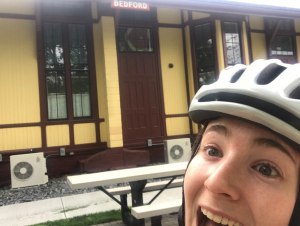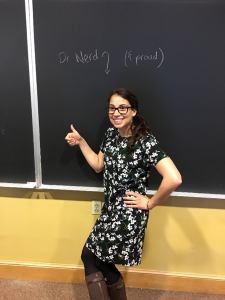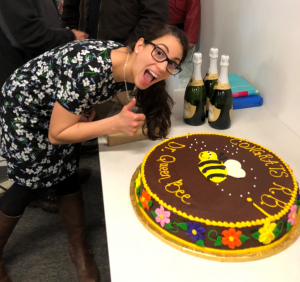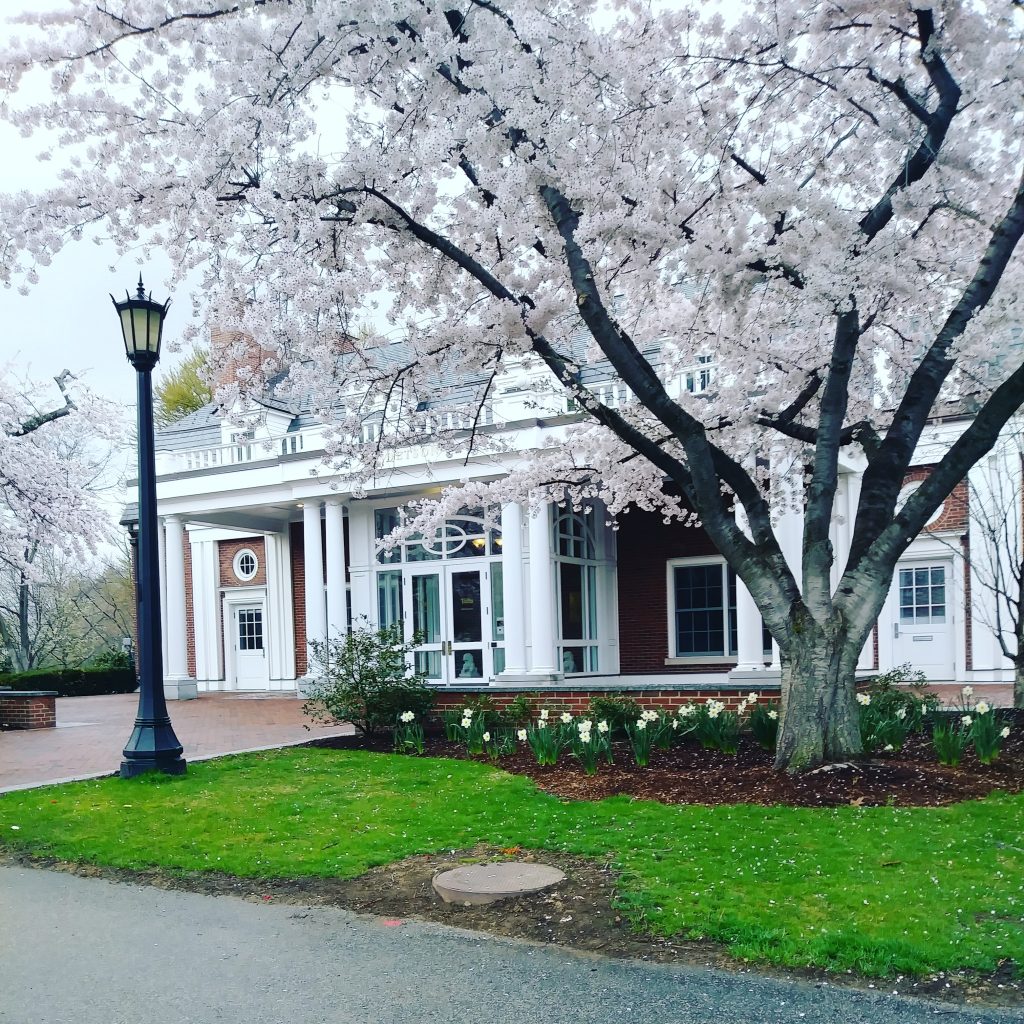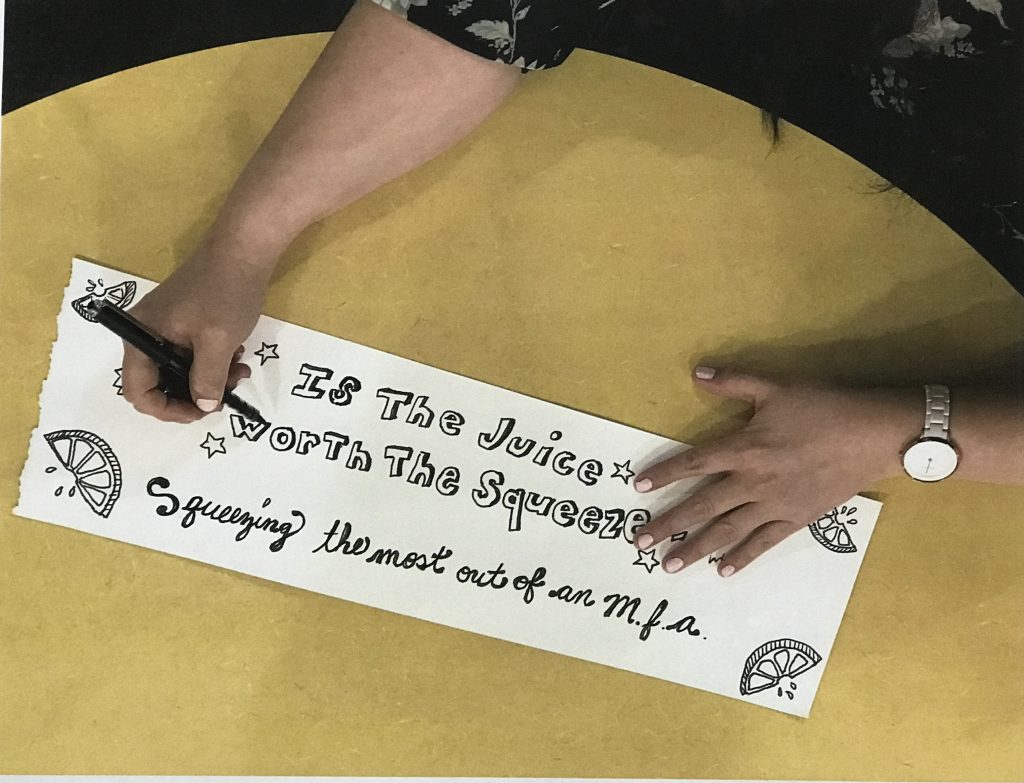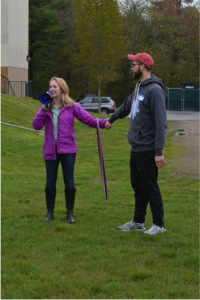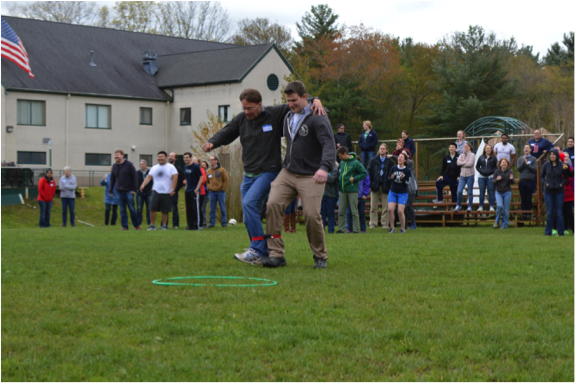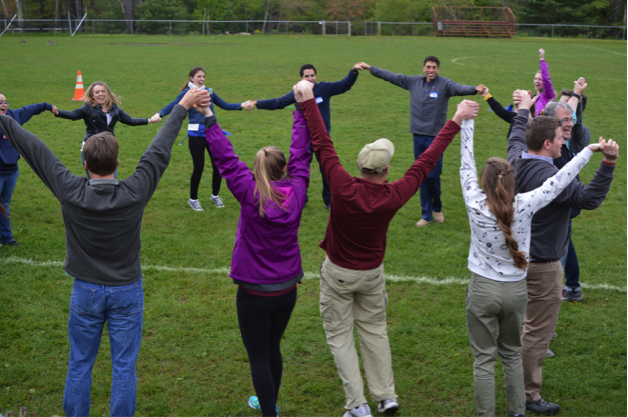Written by Lennon Wolcott, M.F.A. 2017
Before coming from the Midwest to the School of the Museum of Fine Arts at Tufts for my Studio Art Post-Baccalaureate and M.F.A. programs, the only things I knew about Boston were from the films “Good Will Hunting” and “Last Stop Wonderland.” Both films I will point out offer a general and off-putting view of the MBTA (T) system. I also had associated the word tuft with the Dr. Seuss book “The Lorax” and “the bright colored tufts of the Truffula Tree.” A delightful but cautionary tale, which is actually available online by searching “Tufts Lorax.”
It’s funny how even moving states and regions within one country can feel like a complete divide. Through the graduate community of SMFA at Tufts and ASE, I have embraced these Boston and New England differences, which helped me get through the culture shock and feel at home in this vibrant, creative, and significant community.
Here is my Boston and New England glossary of specific themes or cheat sheet, if you will, of days to know, and even how to order coffee in this north east community.
New England Mentality
Attire: Flannel, L.L. Bean, duck boots, fleece vests, raincoats
I was confused my first winter when I saw people wearing rain jackets, instead of big puffy jackets. However, the amount of coastal influence on the weather affects the amount of water that is produced within the greater Boston area. Although the city can get quite cold and experience a heavy amount of snow it is entirely realistic to need both a rain jacket and winter coat. This New England town, has a very distinctive look come mid fall and into winter. The hearty brands seen through the streets are functional for the ever-changing weather and are also New England wardrobe staples. Umbrellas are useful; however, I have gone through at least seven since living in Boston. The wind is so strong that they can be swept upside down and rendered useless in mere minutes. You’ll never go wrong with a heavy rain jacket.
Accents and Language:
“The wicked awesome time she tried to park the car in the yard.”
I will never fully understand the Boston accent. Or why certain places don’t sound at all how they look (see Town Names). The accent is highly tied to living in various areas of the city, and socioeconomic factors. The accents are not as thick as they sound in the movies and on TV. But there is a sense of historic use within words tied to specific functionality and form. When I first moved to Boston, I thought people were trying to fake me out by using words that didn’t make any sense in the context they were giving them. There is a whole New England/Boston vocabulary. The terms bubbler, frappe, rotary, are only a few of the words that may be heard, mispronounced and misunderstood.
Town Names: Worchester (wou-ster), Haverhill (hav-r-ill), Billerica (Bil-ric-a), Leominster (lemon-ster ), Scituate (sitch-you-it), Gloucester (gla-ster).
Town names throughout new England region are mixed with Native Algonquian words and phrases and old English names. After four years I still get quite a few of them wrong, and just point on the map. Luckily, people here are helpful enough to enjoy the mistake, laugh with you, and then educate you on the correct pronunciation
New England/Boston specific foods: Whoopie Pie, Tasty Burger, marshmallow fluff, lobster roll, clam cake, “clear or white but no red” chowder, Sam Adams, Harpoon Brewery, Coffee Syrup (Rhode Island/Massachusetts), Awful Awful (New England style milkshake).
Seasonal, traditional, international, and experimental cuisines are all part of Boston’s rich cultural experience . There are several amazing breweries and food experiences in the greater Boston area to try these dishes throughout the year.
American Horror Story: September 1st in Boston – how to find an apartment and knowing your borough
September 1st is the turn over day for 2/3 of Boston’s apartment leases and has become known as Moving Day. This day is also known as Allston Christmas, a nickname for the tradition in which some people dump furniture and other household items on the curb while moving, which are subsequently scooped up to be reused by neighbors. However, moving into Boston, it is possible to find places to live that have different rental periods beyond September 1st or that will allow you to sublet the last couple of months before September so that you are not stuck in the crunch of college move-in day.
Sports paradise…it is what it is…at least there’s passion
Boston Red Sox, New England Patriots, New England Revolution, Boston Bruins, Boston Celtics.
As the oldest major league baseball stadium in the country, Fenway Park serves as a symbolic home of New England and Boston pride. You may not be a Boston sports fan upon moving here, but if you stay long enough the chances are that you will be eventually. I have never seen a community come together in such a caring and sincere way to show such support for a group ideal like it does for its athletes and teams. People in Boston area show the kind of reverence that many would for a religious figure or beloved family member. It’s hard not to get wrapped up in that kind of infectious behavior.
Gruff but gracious accents
There is a common misconception that the people of the greater Boston area may be unfriendly or unwilling to help newcomers. This is something I have found to be wholly untrue by and large. It has been my experience that often those who meet you with a cold and hard exterior at first are the same that will make sure that you have whatever you need. They may make fun of the situation but are more than willing to help. Whether it be directions, recommendations, or a conversation. New Englanders don’t like to waste time and get to the point, but they will engage for it all.
Lastly, finding time to stop and smell the Dunkin
Dunkin Donuts is a Boston area staple. In almost every area, you are bound to run into one every once and a while. Like Boston itself, there is a unique order and specific language to ordering from this shop.
How to order a coffee
A “regular coffee” comes with cream and sugar (3 cream, 3 sugar). If you want a black coffee, you need to ask for a black coffee.
You can specify your order by having cream or milk added in 1,2,3, amounts and the same with sugar.
If you ask for a flavor—it’s without sugar added.
Any flavor swirl has a healthy dose of flavored sugary syrup added.
If you get an Iced coffee
Boston area residents have been frequently known to ask for a Styrofoam cup with iced coffee. I thought this was strange, however it makes sense. It keeps the cup cool in the spring/summer and your hands warm-er in the winter. Bostonians are not afraid to drink ice cold drinks throughout the winter!




